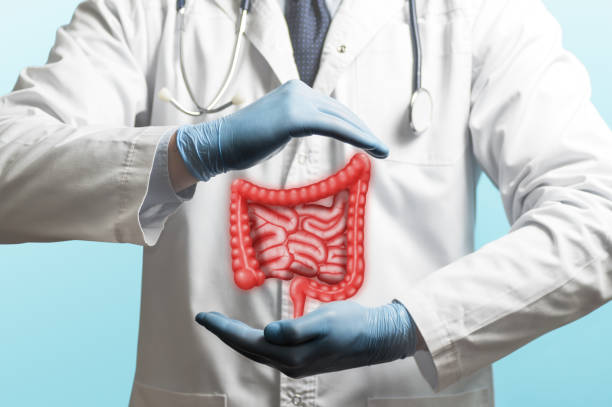
Are you tired of constantly feeling bloated, experiencing digestive issues, and struggling with your weight? These are all signs that your gut health may be out of balance. Our gut plays a crucial role in our overall health, influencing everything from our immune system to our mood. If you’re wondering how to fix gut health and improve your well-being, you’ve come to the right place. In this blog post, we’ll dive into the world of gut health and explore practical ways to restore balance and achieve a happier you.
Understanding the Importance of Your Gut Health
The gut is often referred to as our second brain, and for good reason. It is a complex system consisting of trillions of bacteria, fungi, and other microorganisms that reside in our digestive tract. These microorganisms, collectively known as the gut microbiota, play a vital role in our overall health and well-being.
One of the key functions of the gut microbiota is aiding in digestion. They help break down food, absorb nutrients, and eliminate waste products. Without a healthy balance of gut bacteria, we may experience digestive issues such as bloating, gas, constipation, or diarrhea.
But the importance of our gut health goes beyond digestion. Research has shown that our gut microbiota also plays a crucial role in our immune system. They help defend against harmful pathogens and regulate our immune response. A healthy gut microbiota can help reduce the risk of infections, allergies, and autoimmune diseases.
In addition, our gut health can have a profound impact on our mood and mental health. The gut and brain are connected through a complex network of jitters and chemicals. The gut microbiota produce various neurotransmitters, including serotonin, which is often referred to as the “happy hormone.” An imbalance in the gut microbiota has been linked to mental health issues such as anxiety and depression.
Maintaining a well gut is essential for general well-being. It can help improve digestion, boost immunity, and support mental health. In the next sections, we will explore the signs of an unhealthy gut, essential diet modifications, the role of probiotics and prebiotics, lifestyle changes, and the importance of medical check-ups in maintaining a healthy gut. So let’s dive in and take control of our gut health for a happier, healthier life.

Recognizing Signs of an Unhealthy Gut
Your gut health plays a crucial role in your overall well-being, and when it’s out of balance, it can manifest in a variety of symptoms. It’s important to be aware of the signs that indicate your gut may be unhealthy, so you can take proactive steps to restore balance and improve your health.
One familiar sign of an unhealthy gut is digestive issues. If you frequently experience bloating, gas, constipation, or diarrhea, it could be a sign that your gut microbiota is imbalanced. These symptoms often occur when there is an overgrowth of harmful bacteria or an insufficient amount of beneficial bacteria in your gut.
Another sign to watch out for is food intolerances. If you find yourself experiencing adverse reactions after consuming certain foods, such as gluten or dairy, it could be a result of a compromised gut lining. A healthy gut lining acts as a barrier, preventing undigested food particles and toxins from entering the bloodstream. When this barrier is damaged, it can lead to inflammation and an immune response, causing symptoms like bloating, cramps, or skin issues.
Mood and mental health issues can also be a reflection of your gut health. The gut-brain connection is a bidirectional communication system, meaning that the health of your gut can impact your mood and vice versa. If you frequently experience anxiety, depression, or mood swings, it could be a result of an imbalance in your gut microbiota, specifically a decrease in serotonin production.
Again, a weakened immune system can be a signal of an unhealthy gut. Your gut microbiota plays a vital role in supporting your immune system and defending against harmful pathogens. If you find yourself getting sick frequently, experiencing allergies, or developing autoimmune conditions, it may be an indication that your gut health needs attention.
It’s important to pay attention to these signs and take them seriously. Ignoring gut health issues can lead to long-term health problems and a decreased quality of life. By recognizing these signs, you can take the necessary steps to restore balance in your gut and improve your overall health and well-being.
Essential Diet Modifications for Better Gut Health
In order to restore balance to your gut health, it’s important to make some essential diet modifications. By focusing on nourishing your gut with the right foods, you can improve digestion, reduce inflammation, and support the growth of beneficial bacteria.
First and foremost, it’s crucial to include plenty of fiber in your diet. Fiber acts as a prebiotic, providing food for the beneficial bacteria in your gut. This can be found in foods such as fruits, vegetables, whole grains, legumes, and nuts. Aim for a diverse range of fiber-rich foods to promote a healthy gut microbiota.
Another key aspect of gut-healthy eating is consuming fermented foods. These foods are rich in probiotics, which are beneficial bacteria that can help rebalance your gut microbiota. Some examples of fermented foods include yogurt, kefir, sauerkraut, kimchi, and tempeh. Including these foods in your diet regularly can help support a healthy gut.
Additionally, it’s important to reduce your intake of processed and sugary foods. These types of foods can promote the growth of harmful bacteria and contribute to gut inflammation. Instead, opt for whole, unprocessed foods that are nutrient-dense and easy for your gut to digest.
Lastly, stay hydrated by drinking plenty of water throughout the day. Water helps maintain a healthy gut by supporting digestion and promoting regular bowel movements.
Remember, it’s important to listen to your body and make adjustments based on your individual needs. Pay attention to how different foods make you feel and adapt your diet accordingly. By making these essential diet modifications, you can improve your gut health and ultimately achieve a happier, healthier you.
The Role of Probiotics and Prebiotics in Gut Health
When it comes to maintaining a healthy gut, probiotics and prebiotics are two powerful players that can make a significant difference. Probiotics are live bacteria and yeasts that are good for your gut. They help balance the gut microbiota by increasing the population of beneficial bacteria and crowding out harmful ones. You can find probiotics in various foods, such as yogurt, kefir, sauerkraut, and kimchi. You can also take probiotic supplements if you like better.
Prebiotics, on the other hand, are the food source for probiotics. They are non-digestible fibers that reach your large intestine intact and serve as fuel for the beneficial bacteria in your gut. By consuming prebiotics, you are essentially providing the necessary nutrients for probiotics to thrive and flourish. Foods rich in prebiotics include garlic, onions, leeks, asparagus, and bananas.
Together, probiotics and prebiotics work synergistically to promote a healthy gut microbiota and improve gut health. Probiotics introduce good bacteria into your system, while prebiotics feed and nourish these bacteria, allowing them to multiply and thrive.
When choosing probiotics and prebiotics, it’s important to select a variety of strains and types. Different strains of bacteria have different benefits, and a diverse gut microbiota is associated with better overall health. Look for probiotic supplements that contain multiple strains and consume a range of prebiotic-rich foods to ensure you’re getting a wide array of beneficial bacteria.
It’s worth noting that the effects of probiotics and prebiotics can vary from person to person. What works for one signal may not have the same impact on another. Experiment with different strains and types to find what works best for you. Additionally, it’s always a good idea to consult with a healthcare professional before starting any new supplements or making significant dietary changes.
By incorporating probiotics and prebiotics into your diet, you can support a healthy gut microbiota and improve your overall gut health. Remember, a balanced gut is the foundation for a happy and healthy you.
Lifestyle Changes for a Healthier Gut
When it comes to improving your gut health, diet is just one piece of the puzzle. Making lifestyle changes can also have a significant impact on the balance of your gut microbiota and ultimately, your overall well-being. Here are some simple yet effective lifestyle changes you can incorporate into your daily routine to support a healthier gut:
- Manage stress: Chronic stress can wreak havoc on your gut health. Discover healthy method to manage stress, such as practicing yoga, meditation, or deep breathing exercises. Taking time for self-care and engaging in activities you enjoy can also help reduce stress levels.
- Get moving: Regular exercise not only benefits your physical health but also your gut health. Exercise promotes healthy digestion, reduces inflammation, and helps maintain a diverse gut microbiota. Focus for at least 30 minutes of moderate-intensity exercise, such as brisk walking or cycling, most days of the week.
- Prioritize sleep: Sleep is crucial for gut health and overall well-being. Lack of sleep can disrupt the balance of your gut microbiota and increase inflammation. Focus for 7-8 hours of quality sleep each night and establish a consistent sleep routine.
- Stay hydrated: Drinking an adequate amount of water is essential for a healthy gut. It helps support digestion, keeps bowel movements regular, and aids in the absorption of nutrients. Aim to drink at least 8 glasses of water per day and hydrate with other fluids like herbal teas and infused water.
- Limit alcohol consumption: Excessive alcohol consumption can negatively impact your gut health by disrupting the balance of gut bacteria and damaging the gut lining. Restrict your alcohol intake to moderate levels or consider avoiding it altogether.
- Quit smoking: Smoking is not only detrimental to your overall health but also to your gut health. Smoking increases the risk of developing gastrointestinal conditions and disrupts the balance of gut bacteria. Quitting smoking can greatly benefit your gut health and improve your overall well-being.
By incorporating these lifestyle changes into your daily routine, you can support a healthier gut and improve your overall well-being. Remember, small steps can make a big difference, so start implementing these changes today and reap the benefits of a happier gut.
The Importance of Medical Check-ups in Gut Health Maintenance
Maintaining a healthy gut involves more than just diet and lifestyle changes. Regular medical check-ups are a crucial part of gut health maintenance. While it may be tempting to rely solely on self-diagnosis and home remedies, professional guidance is essential for ensuring the long-term health of your gut.
Medical check-ups provide a comprehensive assessment of your gut health and help identify any underlying issues or imbalances that may be affecting your overall well-being. A healthcare professional can conduct tests and screenings to determine the state of your gut microbiota, identify any deficiencies or infections, and assess the overall health of your digestive system.
One common test that is often recommended is a stool analysis. This test examines the composition of your gut microbiota and can identify any imbalances or pathogenic organisms that may be causing digestive issues. Additionally, blood tests may be conducted to assess nutrient levels, inflammation markers, and overall immune function.
Medical check-ups also allow for early detection of gut-related diseases and conditions. Conditions such as irritable bowel syndrome (IBS), inflammatory bowel disease (IBD), celiac disease, and colon cancer can all be diagnosed and managed through regular screenings and check-ups. Early detection greatly improves the chances of successful treatment and can prevent complications.
Moreover, medical professionals can provide personalized advice and treatment plans based on your unique gut health needs. They can recommend specific probiotic strains or prebiotics to address your individual gut microbiota imbalances and help restore balance.
In conclusion, while diet and lifestyle modifications are crucial for maintaining a healthy gut, regular medical check-ups are equally important. By seeking professional guidance, you can ensure that your gut health is properly assessed, any underlying issues are identified, and a tailored treatment plan is developed. So, don’t neglect the importance of medical check-ups in gut health maintenance and take control of your gut health for a happier and healthier you.



